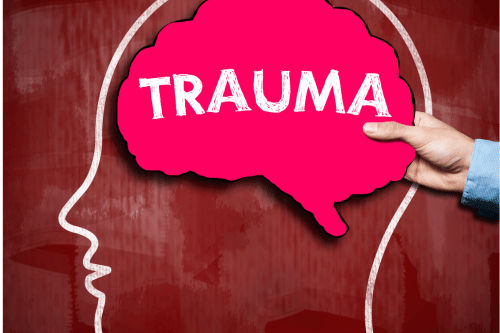So Can Trauma Cause OCD?
The Link Between Trauma and OCD
Many people ask, can trauma cause OCD? This question is gaining attention in clinical and research settings. Understanding the link between traumatic events and obsessive-compulsive disorder may improve early detection and effective treatment strategies.
Understanding Trauma and Its Impact on Mental Health
Definition of Trauma
Psychological trauma involves an intense emotional response to a disturbing event. A traumatic event can overwhelm an individual’s ability to cope. These experiences often leave lasting mental scars.
Types of Trauma
Trauma varies in type and severity. It may involve sexual violence, physical abuse, or a natural disaster. Other types of trauma include medical trauma, childhood neglect, and emotional betrayal.
Psychological Effects of Trauma
Psychological trauma can lead to mental disorders like posttraumatic stress disorder, anxiety disorders, and depression. It may alter cognitive processes and contribute to the onset of OCD-related disorders. Trauma-related memories can become intrusive and interfere with daily functioning.
What is Obsessive-Compulsive Disorder (OCD)?
Obsessive-compulsive disorder is a psychiatric condition characterized by intrusive thoughts (obsessions) and repetitive behaviors (compulsions). These compulsive behaviors aim to reduce fear or anxiety but often worsen the emotional distress over time.
Common Symptoms of OCD
Symptoms include cleaning rituals, checking, counting, or organizing items. These ritualistic behaviors are performed to prevent dreaded events or reduce overwhelming anxiety. Obsessive thinking patterns often cause considerable distress in daily life.
OCD vs. Other Anxiety Disorders
Unlike generalized anxiety disorder or panic disorder, OCD involves a loop of obsessive thoughts followed by compulsive responses. People with OCD often engage in safety behaviors or avoidance behaviors that are not present in other anxiety disorders. A disorder with agoraphobia, for example, centers around fear of public spaces, while OCD fixates on internal threats and fears.
Exploring the Connection Between Trauma and OCD
How Trauma Can Trigger OCD Symptoms
Experiencing trauma can rewire the brain’s response to fear and threat. This can result in exaggerated safety behaviors or compulsive rituals. People may develop trauma-related OCD after sexual assaults or other traumatic life events.
Shared Symptoms of OCD and PTSD
Post-traumatic stress disorder and OCD both involve intrusive thoughts, avoidance, and heightened anxiety. Re-experiencing symptoms and emotional distress are common in both disorders. In trauma-related OCD, compulsive behaviors often serve to neutralize trauma-related memories.
Predisposition to Anxiety Disorders
A genetic predisposition to anxiety or obsessive tendencies can interact with trauma exposure. Individuals with a family history of mental health disorders may be more likely to develop OCD after a traumatic event. Environmental and biological factors can both shape mental health outcomes.
Trauma OCD: A Closer Look
Characteristics of Trauma-Related OCD
The trauma-related obsessive-compulsive disorder includes obsessions tied directly to the traumatic event. Common examples involve hypervigilance, safety rituals, and aggressive or sexual obsessions rooted in past experiences. This version of OCD often appears in clinical and non-clinical samples with a known trauma history.
Differentiating Trauma OCD from Traditional OCD
Unlike traditional OCD, which often involves irrational fears (e.g., contamination or symmetry), trauma-related OCD reflects a reaction to real events. Trauma OCD symptoms often intensify when trauma-related triggers or trauma-related memories are encountered. This distinction influences the selection of treatment options and therapy focus.
Treatment Options for Trauma-Induced OCD
Cognitive-behavioral therapy (CBT)
CBT remains a first-line treatment for OCD and other psychiatric disorders. It helps clients identify negative beliefs, reduce avoidance behaviors, and challenge irrational thinking. In trauma OCD cases, CBT can be tailored to address both trauma and compulsive behavior patterns.
Eye Movement Desensitization and Reprocessing (EMDR)
Eye movement desensitization is effective for trauma-induced symptoms. EMDR helps reprocess traumatic memories without relying on compulsions. It is often used in tandem with CBT in trauma-focused care settings.
Role of Medication
Selective serotonin reuptake inhibitors (SSRIs) are FDA-approved for treating obsessive-compulsive disorder. These medications help regulate brain chemistry and reduce repetitive behaviors. In trauma OCD, SSRIs may be combined with therapy to target both depression and OCD symptoms.
Mindfulness and Coping Strategies
Mindfulness helps individuals stay present and observe their thoughts without judgment. It reduces emotional pain and interrupts compulsive cycles. Coping strategies such as deep breathing, grounding techniques, and journaling can reduce symptom severity.
Importance of Addressing Trauma in OCD Treatment
Therapeutic Approaches for Past Trauma
Ignoring trauma in OCD treatment may limit success. Effective treatments must consider both the obsessive-compulsive patterns and underlying trauma. Cognitive Processing Therapy, exposure therapy, and behavioral therapy have shown promise in treating trauma-related OCD.
Long-Term Recovery and Management
Sustainable recovery depends on treating the full picture. Exposure and Response Prevention (ERP), a subtype of CBT, is essential for reducing compulsions. Addressing trauma improves the overall impact on treatment outcomes, especially in treatment-resistant obsessive-compulsive disorder cases.
Current Research on Trauma and OCD
Emerging Studies and Findings
Recent studies in journals such as Health Psychology and Behavioral Medicine, the Journal of the American Academy of Child and Adolescent Psychiatry, and the American Journal of Psychiatry explore the trauma-OCD link. Research suggests a strong correlation between trauma exposure and the onset of OCD in both clinical and non-clinical populations.
The dimensional obsessive-compulsive scale and the Yale-Brown Obsessive Compulsive Scale are frequently used in these studies. These tools help measure OCD severity, symptom dimensions, and treatment outcomes across diverse population samples.
Future Directions in Research
Future research aims to identify predictors of trauma-related OCD, explore the rate of PTSD in OCD patients, and study comorbidity in psychiatric conditions. Researchers are also investigating how trauma impacts disorder in treatment, especially in residential settings.
There is growing interest in studying the pediatric population using the Children’s Yale-Brown Obsessive Compulsive Scale. A sample of children with trauma exposure is helping researchers understand early intervention strategies and the potential limitations of existing models.
Special Considerations in Pediatric and Adolescent Populations
Children and adolescents are especially vulnerable to trauma-related obsessive-compulsive disorder. Traumatic memories in children often manifest as disruptive behavior or OCD symptoms. School-age children may show heightened fear, ritualistic behaviors, and emotional withdrawal after experiencing trauma.
At Treat MH Tennessee, our pediatric treatment programs use evidence-based tools to assess trauma and OCD in young individuals. Early treatment reduces long-term impact and improves quality of life. Our team of licensed mental health professionals is trained to work with trauma in children and teens.
Treatment Programs at Treat MH Tennessee
Treat MH Tennessee provides targeted care for clients struggling with trauma-related OCD. Our programs include Cognitive-Behavioral Therapy, Eye Movement Desensitization and Reprocessing, and Exposure and Response Prevention. We use diagnostic tools such as the Yale-Brown Obsessive Compulsive Scale to track progress.
Whether you’re dealing with trauma from sexual violence, a natural disaster, or other traumatic life events, we address both symptoms and root causes. Our therapies aim to reduce ritualistic behaviors and increase function in daily life. For severe OCD symptoms, we offer support in outpatient and residential settings.
Our programs also support clients with co-occurring psychiatric conditions, including depression, generalized anxiety, and post-traumatic stress disorder. With a history of trauma, early intervention, and specialized care make a critical difference.
Conclusion
So, can trauma cause OCD? The answer is yes. Traumatic events can lead to the onset or worsening of obsessive-compulsive disorder symptoms. From intrusive thoughts to compulsive behaviors, trauma shapes how mental disorders develop and how they should be treated.
Trauma-related OCD requires specialized care that addresses both the obsessions and the underlying trauma. With proper treatment, including behavioral therapy, EMDR, and SSRIs, individuals can find lasting relief. At Treat MH Tennessee, we’re here to provide effective treatments that restore balance and improve quality of life.
If you or a loved one is experiencing symptoms related to trauma and OCD, reach out today. Our programs are designed to guide individuals toward recovery and healing—step by step.
FAQ's
Yes, trauma-related OCD may respond more slowly to treatment, especially if trauma is untreated alongside OCD symptoms.
Yes, unresolved childhood trauma can influence the development of OCD symptoms later in life, often tied to safety and control themes.
Therapists assess both OCD symptoms and trauma history, using clinical interviews, standardized scales, and behavioral patterns.
Yes, new or reactivated trauma can intensify existing OCD symptoms, increasing the frequency or severity of compulsions.










